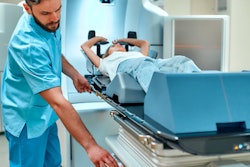The Royal Australian and New Zealand College of Radiologists (RANZCR) has published a draft set of principles aimed at guiding the ethical development of artificial intelligence (AI) technology in medicine, particularly for clinical radiology and radiation oncology.
The draft, called Ethical Principles for AI in Medicine, discusses eight ethical principles for guiding the development of standards of practice for AI research and the deployment of AI tools in medicine, RANZCR said. The principles also will guide the "upskilling" of radiologists in machine learning (ML) and AI, as well as the ethical use of ML and AI in medicine.
The document also details how AI and ML can be used to protect patient data, and how the technology can be balanced with the application of humanitarian values, according to RANZCR.
"The agreed principles will, when established, complement existing medicinal ethical frameworks, but will also provide doctors and healthcare organizations with guidelines regarding the research and deployment of [machine learning] systems and AI tools in medicine," RANZCR president Dr. Lance Lawler said in a statement.
Developed by RANZCR's AI Working Group, the eight principles encompass:
- Safety
- Avoidance of bias
- Transparency and explainability
- Privacy and protection of data
- Decision-making on diagnosis and treatment
- Liability for decisions made
- Application of human values
- Governance
The full draft guideline can be found on the RANZCR's website. Comments from the public will be accepted until the close of business on 26 April.



















